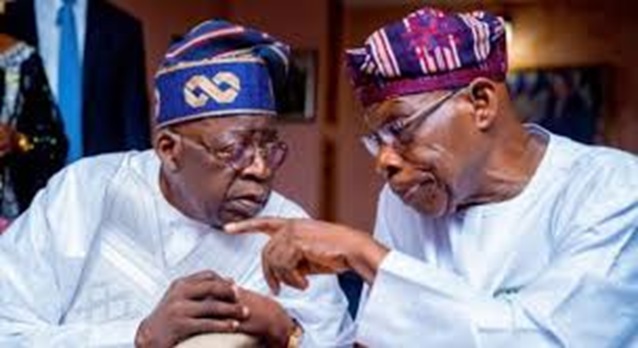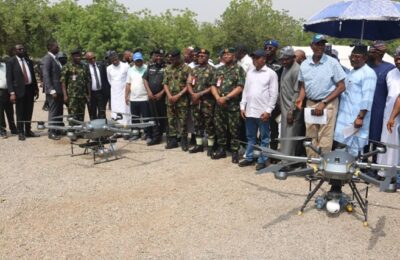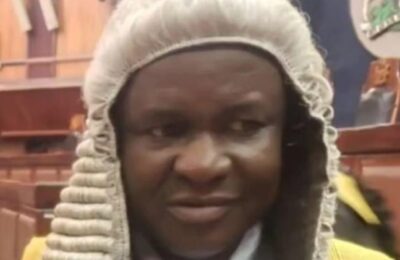The tide of discontent that could be stirred by the views expressed by Comrade Adabara Abduljelil El-Okene in his piece titled “The Political History of Nigeria and the Marginalization of the Ebira Ethnic Group” calls for an honest, factual, and balanced response.
His allegation of marginalization in the distribution of political offices and appointments in Nigeria, particularly from 1999 to date in favour of Okun Yoruba people of Kogi state appears, to any sincere observer of Nigerian politics, to be grossly misplaced.
These claims, though emotionally loaded and politically sensitive, require an objective rebuttal, one that respects history, defends unity, and promotes the collective destiny of all Nigerians, particularly we in Kogi State.
Comrade Adabara failed to acknowledge a critical historical truth. In the old Kwara State, which was dominated by the Yoruba (including the Okun people of present day Kogi West), the late Alhaji Adamu Atta, an Ebira man, emerged as governor despite the numerical disadvantage of his ethnic group. Okun people never produced a governor in Kwara, even though they belonged to the state’s dominant ethnic bloc.
Fast forward to Kogi State, created in 1991 and comprising three senatorial districts, Kogi East (Igala), Kogi Central (Ebira) and Kogi West (Okun-Yoruba and Lokoja-Koto)
Between 1991 and 2016, Kogi East produced three executive governors, Prince Abubakar Audu, Alhaji Ibrahim Idris, and Captain Idris Wada,(Igalaland) collectively governing for nearly 20 years.
Since 2016, Kogi Central (Ebira land) has held the governorship, first through Alhaji Yahaya Bello (2016–2024) and now Governor Usman Ododo (2024–present). This marks eight uninterrupted years of leadership from Kogi Central.
So I ask: Should a man carrying an elephant on his head be seen chasing a rat into a hole?
Kogi West, made up mostly of the Okun Yoruba people, has never produced a governor, neither in the old Kwara State nor in Kogi State. If any zone can lay claim to political marginalization, it is Kogi West, which has been structurally and persistently denied access to the governorship.
So I pose a moral question to Comrade Adabara: Who, in your good conscience, has the right to cry out about marginalization?
Both Governor Yahaya Bello and Governor Usman Ododo hail from Kogi Central. But the governorship is singular, and access to it should be determined by rotational electoral outcomes. ideally rotational, but certainly not sentimental.
The Okun Yoruba people are not protesting, they are not complaining. They are not bitter. But they will not sit idle while the truth is distorted to make it seem like they are blind to the political imbalance that has repeatedly denied them fair representation.
The tragic death of Prince Abubakar Audu in 2015 remains a painful memory for us in Okunland. On every moral and spiritual ground, Rt. Hon. James Abiodun Faleke, our son and deputy governorship candidate, ought to have inherited the electoral mandate. That he was denied remains an unresolved injustice.
It is, therefore, deeply surprising that Comrade Adabara, instead of advocating for equitable redress, has chosen to raise grievances on behalf of a zone that has held power for nearly a decade.
The claim that Kogi Central has been sidelined at the federal level is also unsupported by evidence. The district has consistently produced high profile federal cabinet members, as well as appointees in various federal boards, parastatals, and agencies.
To the glory of God, Kogi Central has not only been represented it has also thrived. Unless the marginalization Comrade Adabara refers to is simply that “I, Comrade Adabara, have not been appointed.”
Let us be clear: No ethnic group or senatorial district has a monopoly over political power. Leadership should be rotational, not claimed. It is achieved through coalition building, persuasion, and strategic engagement not through emotional blackmail or revisionist storytelling.
Our Ebira brothers are well aware of the critical roles Rt.Hon. James Abiodun Faleke played in the second term victory of Governor Yahaya Bello and the election success of Governor Usman Ododo in the last gubernatorial election in Kogi state
Hon. Faleke’s efforts and infrastructure interventions across Kogi State, including Central, East and West have been visible and impactful. Rather than provoking suspicion, Kogi must show gratitude and respect.
Grievances must be rooted in truth, democracy allows room for grievances. But those grievances must be grounded in truth, not driven by entitlement, personal disappointment, or narrow interests.
Kogi State, a confluence of rivers, is also a confluence of cultures, identities, and values. We must never let anyone weaponize ethnicity to sow division.
The Okun Yoruba people of Kogi West, believe in, unity, not division, Justice, not favoritism, collaboration, not confrontation and constructive engagement, not propaganda
Though we have been sidelined at critical moments, we remain committed to the peace and progress of Kogi State.
Political appointments are temporary. But the unity and stability of Kogi State are permanent and non-negotiable.
Let us rise above petty grievances. Let us reject false narratives. Let us not allow personal ambition to wear the cloak of communal struggle.
Let every senatorial district, East, Central, and West be given a fair, rotational opportunity to govern. That is the only sustainable path toward peace, fairness, and inclusive development in Kogi politics.
– Musa Bakare wrote in the interest of truth, unity, and the continued progress of Kogi State.




